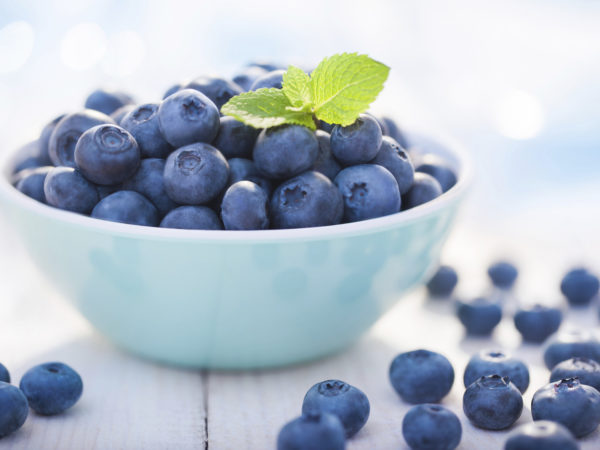Picking the Best Blueberries?
Do my dried blueberries contain as many antioxidants, phytochemicals, and other nutrients as fresh or frozen ones do?
Andrew Weil, M.D. | June 17, 2004

It’s fine to substitute dried blueberries for fresh or frozen ones. In all three forms, these berries are packed with nutritional power. The anthocyanins they contain (the pigments that make them blue) are potent antioxidants. What’s more, blueberries may have anti-aging effects as well. Results of an animal study conducted by the U.S. Department of Agriculture and the National Institute on Aging showed that a diet containing blueberry extracts enhanced balance, coordination and memory in aging rats. Researchers tested four groups given diets that included blueberry, strawberry, or spinach extracts, or none of these. The blueberry rats outperformed the other rats in balance and coordination; and blueberries and strawberries seemed to offer the most protection against oxidative stress in the brain. Researchers are now attempting to learn how long these changes last — and whether they hold true in humans.
Blueberries came out on top in a comparison of the antioxidant power of 40 different types of fruits and vegetables at the Jean Mayer USDA Human Nutrition Center on Aging at Tufts University. While it is unrealistic to expect blueberries to be the fountain of youth, they are a healthy low glycemic-index carbohydrate and a good source of vitamin C and fiber (two grams per one-half cup serving). They also provide ellagic acid, a natural compound that inhibits tumor growth in laboratory mice. And, like cranberries, blueberries contain a substance that can help prevent urinary tract infections by interfering with the attachment of bacteria to the bladder wall.
My only concern about dried blueberries is that they are a concentrated source of sugar – about halfway between fresh fruit and candy. Keep eating them, but practice moderation!
Andrew Weil, M.D.









